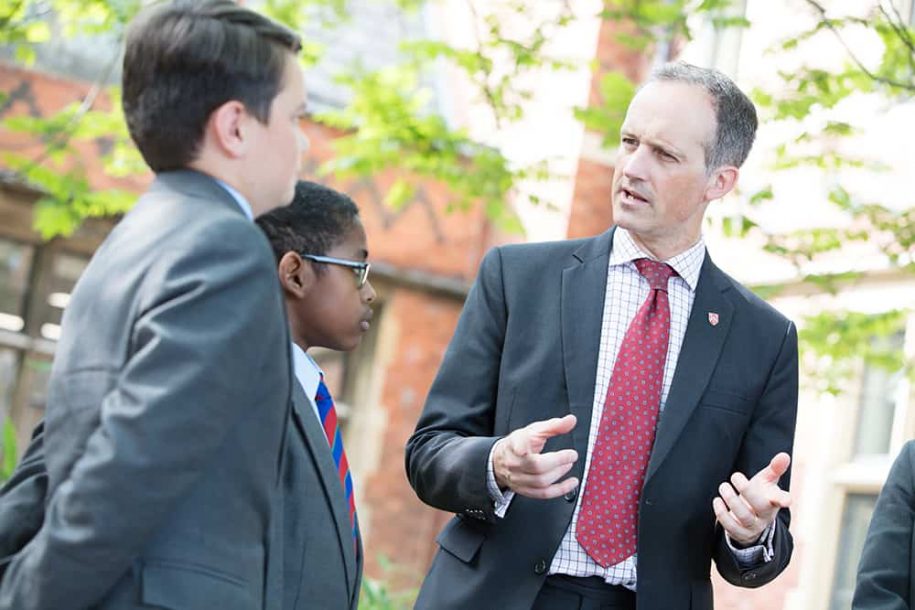The advance of AI

As I opened up the Times last Saturday, my eyes were drawn to <a href=”http://www.thetimes.co.uk/article/36df4228-c8f9-11e8-a4a5-a34bea2c1d04″>an article</a> claiming that schoolteachers were set to be replaced by artificial intelligence. This was penned by Sir Anthony Seldon, Vice-Chancellor of the University of Buckingham and the former Headmaster of Wellington College. Sir Anthony is a great fan of modern technologies and has a nose for a controversial newspaper headline. His theory seems quite sound: the computers and tablets that are present already in many classrooms will actually do the teaching, and will be able to respond to learners’ needs to help them overcome any difficulties. So does this spell the end for LGS subject teachers?
In short, I believe that reports on the imminent demise of the teacher have been grossly exaggerated. Since the dawn of the information age, educators have sought to validate their existence by pointing out that learning is not just about facts, but that teachers are required to help learners with higher-order thinking skills. We help them to process information into understanding, to develop analytical skills and we provide a variety of ways in which to help pupils overcome conceptual hurdles to progress.
Nevertheless, when I attended a conference on Artificial Intelligence in education six months ago, I learned that AI is making huge strides in this last aspect – the role of the teacher in helping pupils overcome problems. When a teacher notices that a boy is struggling with a new concept, s/he uses his or her experience to reframe it. Depending on a boy’s response, s/he will adapt the advice and try alternative approaches until the obstacle is overcome. I now understand that AI is rapidly developing the same skill-set, and is beginning to develop the ability to analyse a learner’s answers and to respond accordingly. In fact, AI is likely, in time, to be more effective than a human as it will avoid the biases to which we all fall prey.
However, I am much more sceptical about the ability of AI to truly <u>engage</u> pupils of school age in their learning. What research into boys’ learning in particular shows is that learning is about the quality of relationships. Boys achieve much higher standards for teachers who create an exciting learning environment where it is ‘cool’ to work hard. Boys work harder in lessons where they empathise with the teacher; they work for teachers whom they like and what they value in a teacher is enthusiasm, a sense of humour and an understanding of ‘give and take’. Will learning-bots be able to do humour? Eventually, anything is possible but surely a computer won’t be able to master the timing and modulation of voice required to be humorous any time soon?
I will openly admit that the Grammar School can do more with technology to support boys’ learning. Firefly is a useful tool for most teachers and their classes, but we need to develop it much further so that the best subject pages are replicated across our curriculum. In some subjects, the traditional textbook is supported by extensive Firefly pages, which contain videos re-explaining the key material presented in class, interactive tests, and extension resources for those who wish to explore further. We are committed to developing Firefly across all subjects and technology will thus provide great support to the more traditional modes of classroom teaching. In particular, good web-based resources facilitate differentiation – the name we give to helping pupils learn at different speeds within the same lesson depending on their existing knowledge and confidence.
However, I don’t think that teachers will be supplanted by AI any time soon. The personal relationship between educator and learner is too important and should certainly not be under-rated by commentators eager to create headlines.
